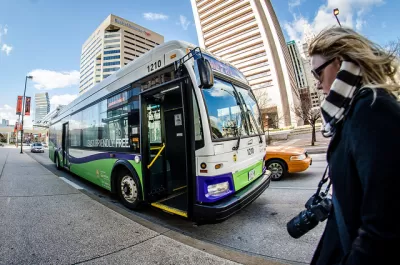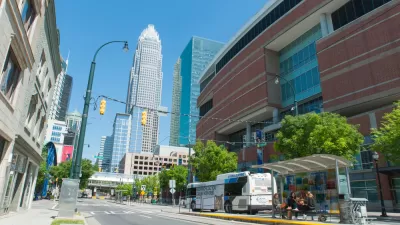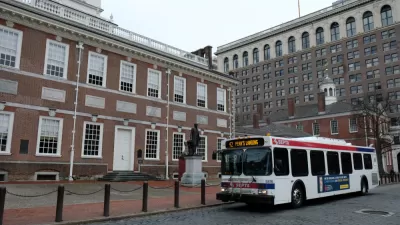Improving headways and making service more reliable can help reduce the negative public image faced by urban bus transit.

A piece by Ely Portillo in the Transit Time newsletter evaluates the stigma faced by bus transit. While "[b]uses still carry the majority of local transit riders, and they’re far cheaper and quicker to roll out than trains," taking the bus still suffers from a social stigma that must be overcome in order to boost ridership and make buses a viable daily transportation option for more Americans. In North Carolina, Charlotte City Council member Braxton Winston "pointed to residential segregation and the bus system’s historical use by people like cleaning personnel and domestic workers who needed to get into the city’s center to work but didn’t own cars" as factors in the negative public perception of buses.
But some transit advocates argue that discussing stigma "just doesn’t get at the real problem." As Jarrett Walker puts it, "[t]he real problem is people don’t use public transit if public transit is useless to them." Additionally, "it’s hard to talk about bus stigma without perpetuating bus stigma." Improving service, reducing headways, and making transit more accessible and affordable would do more to attract new riders, says Walker. The Charlotte Area Transit System (CATS) "is taking steps to make its bus system more useful to riders," but according to Winston, the stigma remains. "If you don’t overcome that culture change, that’s gonna be tough. CATS can't do that alone."
FULL STORY: OVERCOMING THE 'STIGMA' OF RIDING THE BUS

Planetizen Federal Action Tracker
A weekly monitor of how Trump’s orders and actions are impacting planners and planning in America.

San Francisco's School District Spent $105M To Build Affordable Housing for Teachers — And That's Just the Beginning
SFUSD joins a growing list of school districts using their land holdings to address housing affordability challenges faced by their own employees.

The Tiny, Adorable $7,000 Car Turning Japan Onto EVs
The single seat Mibot charges from a regular plug as quickly as an iPad, and is about half the price of an average EV.

With Protected Lanes, 460% More People Commute by Bike
For those needing more ammo, more data proving what we already knew is here.

In More Metros Than You’d Think, Suburbs are Now More Expensive Than the City
If you're moving to the burbs to save on square footage, data shows you should think again.

The States Losing Rural Delivery Rooms at an Alarming Pace
In some states, as few as 9% of rural hospitals still deliver babies. As a result, rising pre-term births, no adequate pre-term care and "harrowing" close calls are a growing reality.
Urban Design for Planners 1: Software Tools
This six-course series explores essential urban design concepts using open source software and equips planners with the tools they need to participate fully in the urban design process.
Planning for Universal Design
Learn the tools for implementing Universal Design in planning regulations.
Smith Gee Studio
City of Charlotte
City of Camden Redevelopment Agency
City of Astoria
Transportation Research & Education Center (TREC) at Portland State University
US High Speed Rail Association
City of Camden Redevelopment Agency
Municipality of Princeton (NJ)





























